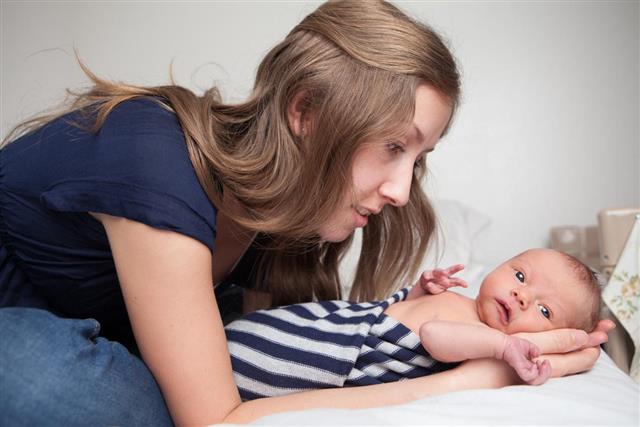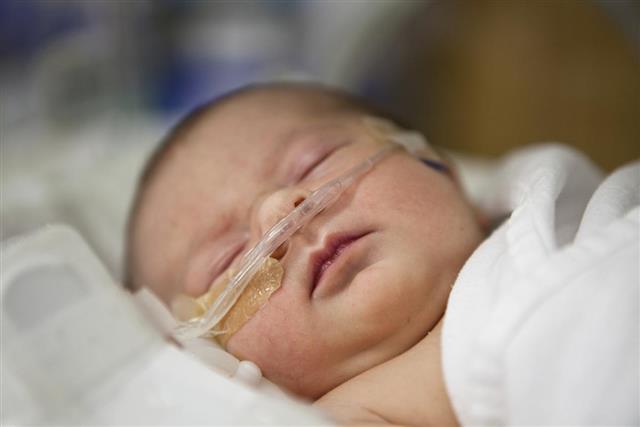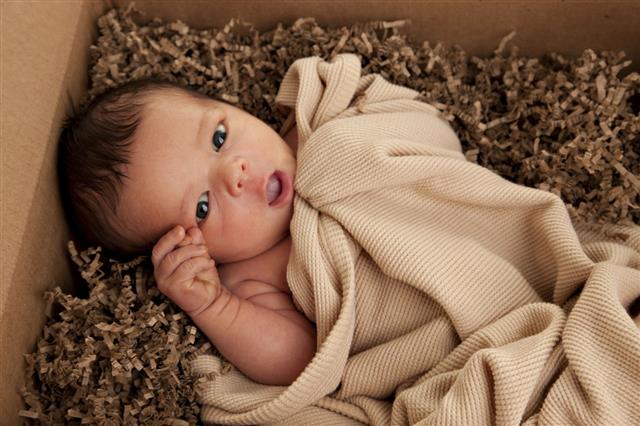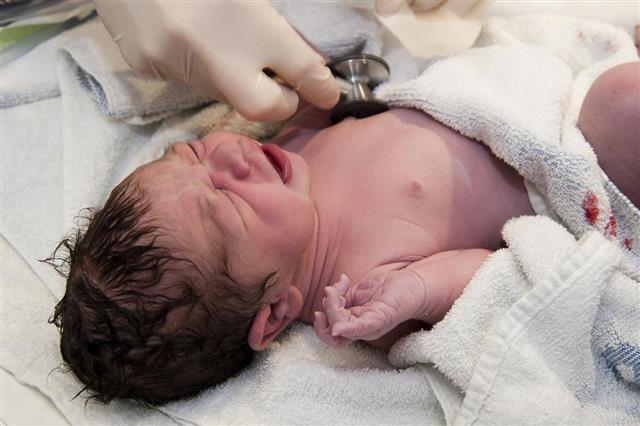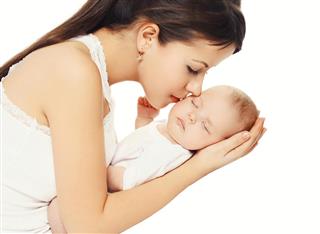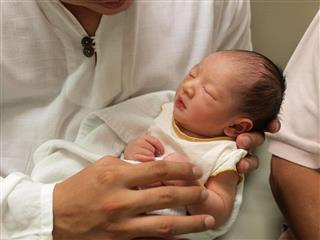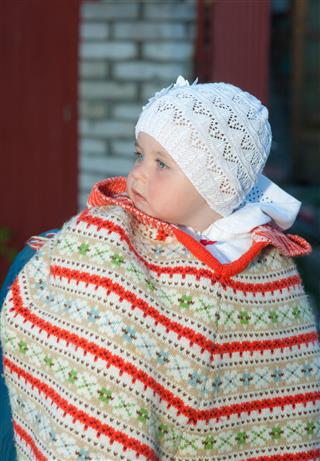
In adults, chest congestion can be very discomforting. In infants though, it can be discomforting as well as serious, mainly because of the fact that the treatment options available in this case are limited.
The US Food and Drug Administration (FDA) does not recommend the use of over-the-counter (OTC) cold and cough medication for children under the age of 2 years for the possibility of life-threatening side-effects.
Chest congestion is a symptomatic condition associated with several illnesses or chronic infections wherein the formation of mucus in the lungs and respiratory tract makes it difficult for the person to breathe. While there is no precise age at which a person can be affected by this condition, the same is relatively common in children―especially infants.
What Causes Chest Congestion in Infants?
In infants, chest congestion causes range from spitting up (regurgitated milk) to some underlying infection. In most of the cases, it is caused in response to viral, bacterial, or fungal infection in the baby’s upper respiratory tract, i.e., the upper respiratory tract infection (URI). Common cold, which triggers mucus secretion and eventually leads to congestion in the chest as well as nose (i.e., nasal congestion), is by far the most common cause of this condition in both, children and adults.
As their immune system is still in the developing stage, infants are vulnerable to various allergies as well. When allergens enter the body, mucus is secreted to fight them as a part of the body’s defense mechanism. At times, however, this mucus starts building up in the respiratory tract and eventually results in chest congestion.
Are There Any Symptoms of This Condition?
Like we said earlier, chest congestion in itself is usually a symptom of some underlying condition that the infant is suffering from. Having said that, it is often accompanied by other symptoms, and overall diagnosis can help in finding the root cause of the problem. Depending on the underlying condition, the accompanying symptoms will include breathing difficulty, low-grade fever, irritability, difficulty in feeding and sleeping, and even wheezing at times. More importantly, as the baby is not able to express the discomfort, it becomes very difficult to diagnose the condition.
How to Deal With Chest Congestion in Infants?
As for the treatment part, the same will depend on the underlying condition. The biggest problem in case of infants though, is that they cannot be administered over-the-counter (OTC) medication. Nor is it advisable to resort to home remedies, like eucalyptus steam or green tea, in this case. The most important task is to keep the baby’s nose free from mucus buildup, which can be done by dripping a small amount of saline solution in the baby’s nose and clearing the buildup using a bulb syringe after a minute or two.
One of the widely recommended treatment options is to apply a mild vapor rub on the baby’s chest. The vapor will help in clearing the nasal pipe and relieve the stuffiness associated with congestion. Though effective, you should only opt for it if you are sure that your baby is not allergic to the vapor rub. Yet another method of dealing with this problem is to make the baby sleep in an elevated position; this will curb the growth of mucus in the chest.
You can also use a humidifier in the baby’s room. This will help loosen the mucus in the baby’s nasal cavity and chest, thus providing for the baby. In yet another tried and tested method, you can run the hot water shower and wait in the bathroom with the baby for 10 to 15 minutes. The steam produced in the bathroom will work as a humidifier and clear the respiratory tract off unwanted mucus. If the condition is triggered by regurgitated milk or saliva, then simply holding the baby upright will suffice.
While chest congestion is not usually a serious ailment, things can go out of hand at times. As their immune system is weak, infants are more vulnerable to infectious diseases than adults. This makes it all the more important to subject them to proper medical care at the earliest. Taking into consideration the seriousness of the issue, you should promptly see a doctor if the baby is having any trouble breathing, has high fever, or you notice discoloration of mouth or skin.
Disclaimer: This article is for informative purposes only and should not be used as a replacement for expert medical advice.
